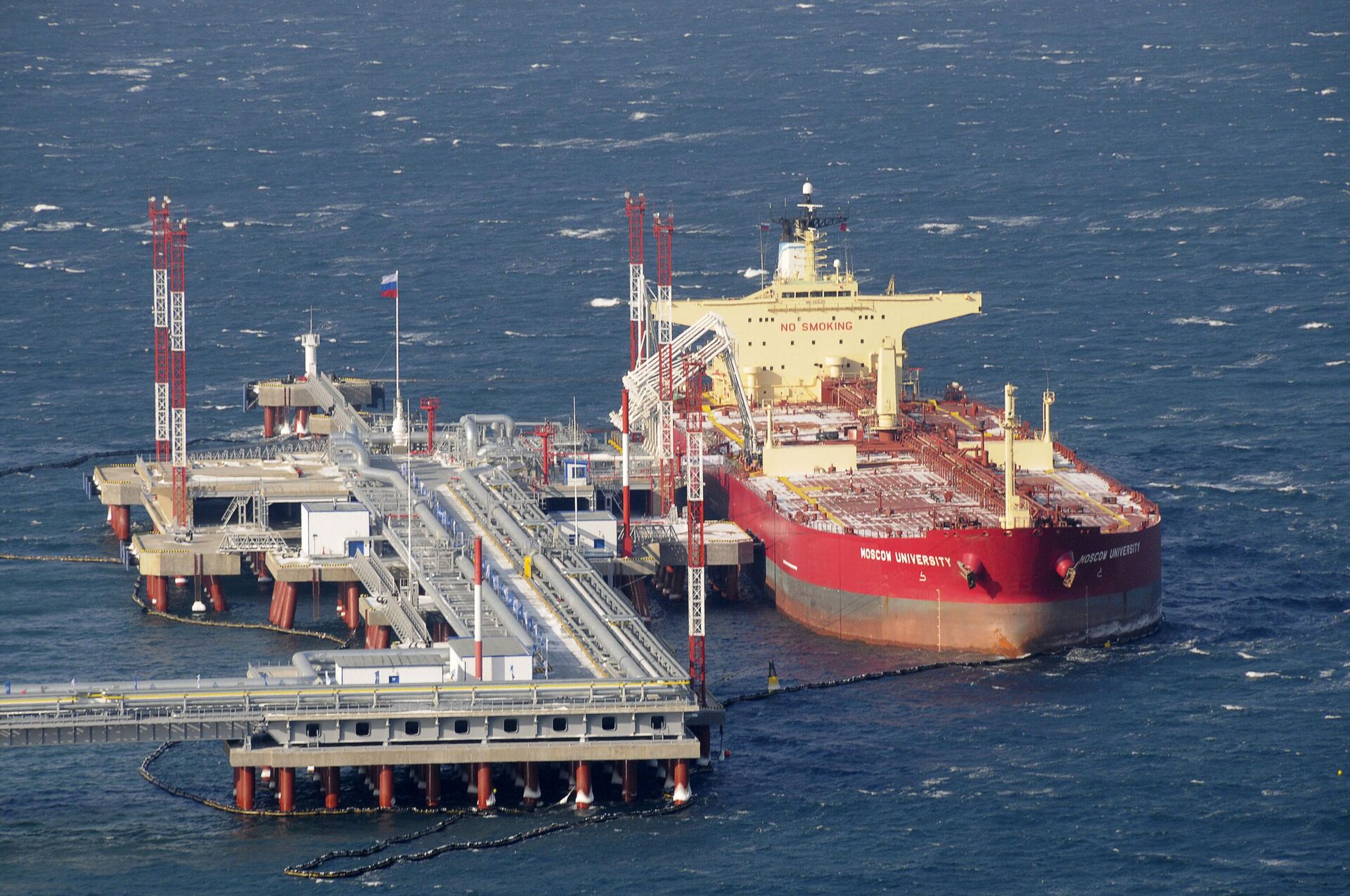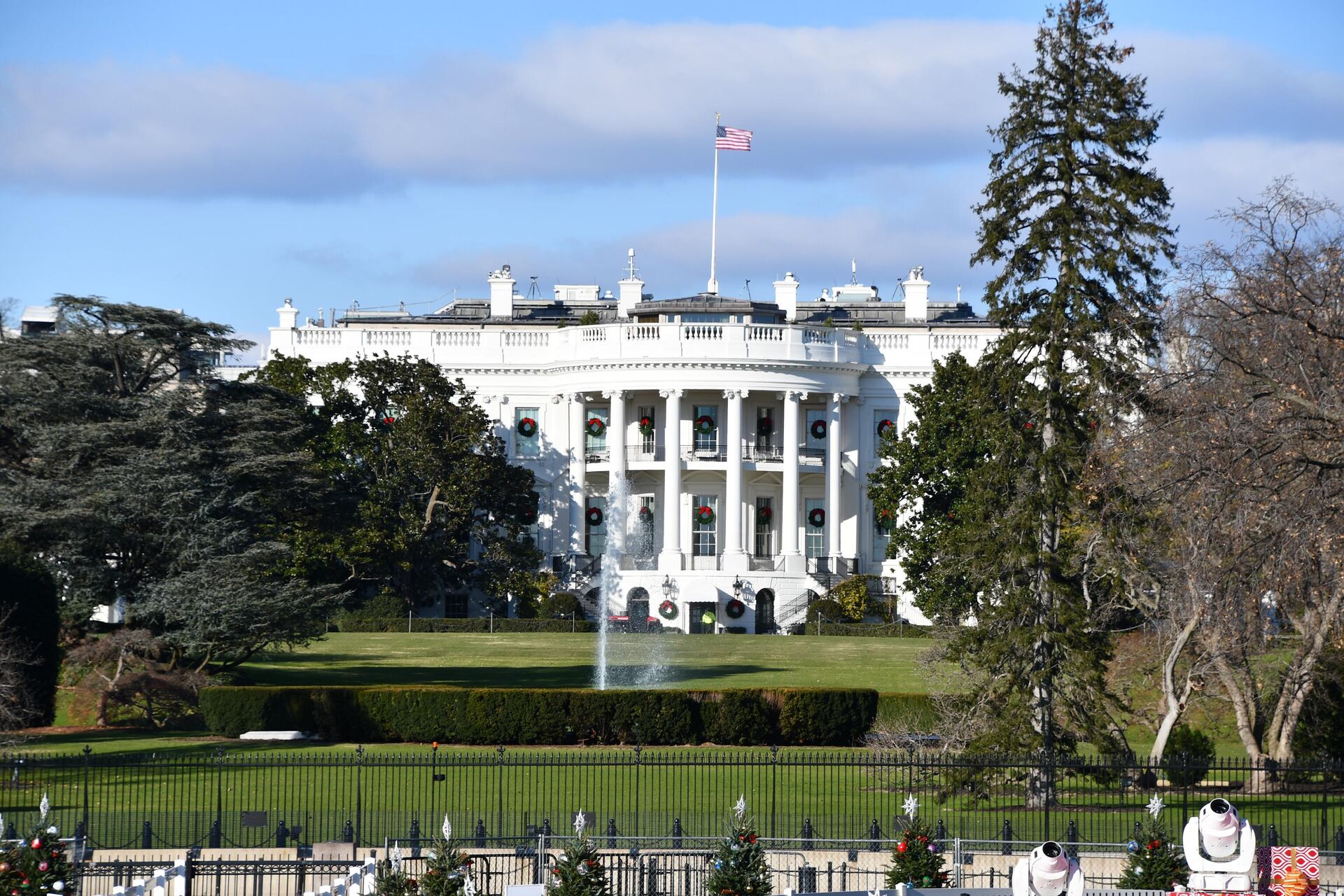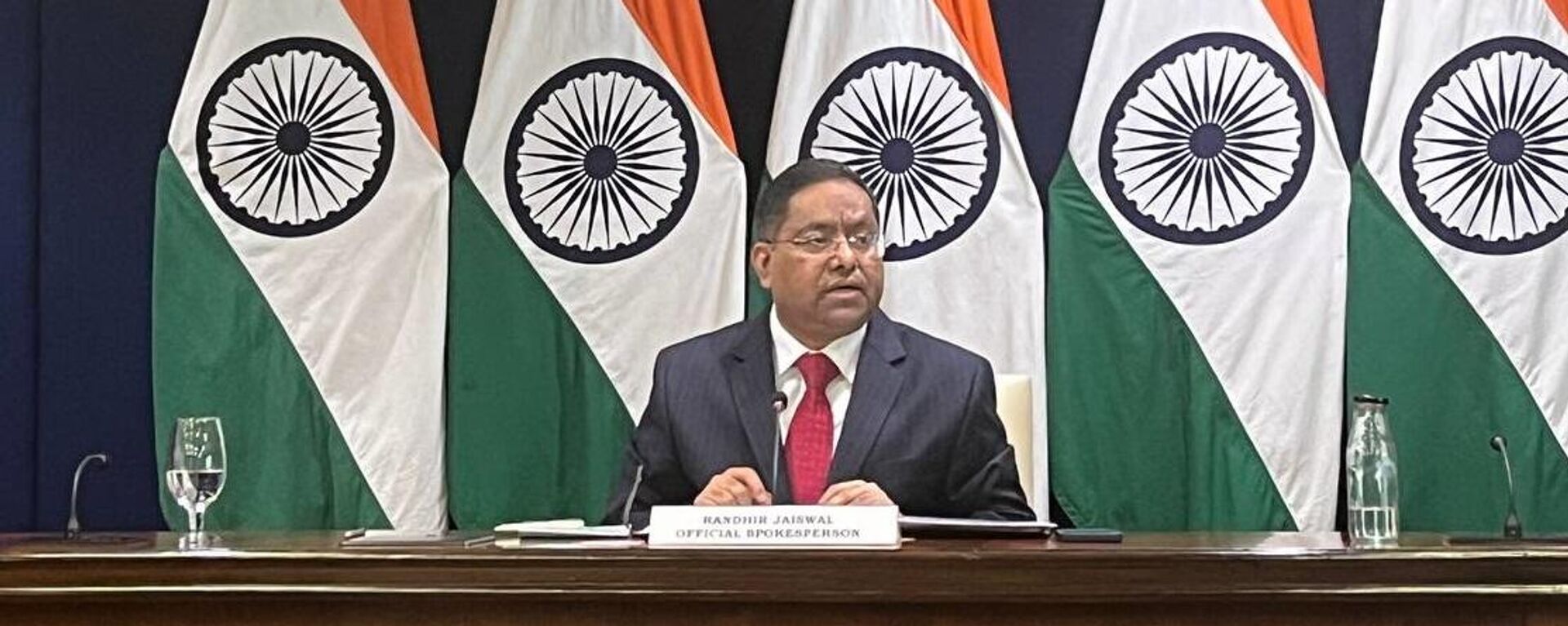Imperial Facetiousness – US Says It Allowed India to Purchase Russian Oil
15:25 18.05.2024 (Updated: 16:59 18.05.2024)

© Sputnik / Maksim Bogodvid
/ Subscribe
On May 12, the US Ambassador to India, Eric Garcetti, during a conference on diversity in international affairs in Washington, made a statement that was so far off from the truth that it sounded plausible – as in alternate and better reality.
Eric Garcetti contended that the US allowed India to purchase Russian oil because the US wanted to ensure global oil prices didn’t rise.
"They bought Russian oil because we wanted somebody to buy Russian oil at a price cap, that was not a violation. It was the design of the policy because as a design of the commodity we didn’t want the price of the commodity to go up, they fulfilled that," he said.
The US Ambassador's contention painted India's external affairs minister Dr S Jaishankar as a liar.
At an event in Amritsar on May 11, while explaining how India does not succumb to pressure from other countries, Dr S Jaishankar said: “We were under pressure not to buy oil from Russia. Imagine if we bow down and don’t buy oil from Russia, tell me how much the petrol price increases for you, at least by 20 rupees per litre, you pay more."
Understanding the Price Cap
The price cap that the US officials referred to was imposed by the Group of Seven (G7) wealthy nations, the European Union and Australia, which bans the use of Western maritime services such as insurance, flagging the transportation when tankers carry Russian oil priced at or above $60 a barrel.
The catch is – adhering to the price cap of $60 a barrel does not entitle you to the use of Western maritime services such as insurance and flagging.
The availability of Western insurance depends on specific circumstances and geopolitical factors. Insurers have their own takes on the risks involved in covering tankers transporting oil from Russia. They tend to be guided by their investors and the financial institutions that they deal with, rather than the conditionality associated with the G7 price cap.
For example, insurers factor in the vessel’s route. Tankers carrying Russian oil may not be allowed access to certain ports because port authorities may be wary of US sanctions.
Market dynamics, including supply-demand balance and geopolitical developments, play a role. Shipowners deploy their tankers after carefully weighing economic benefits against potential risks.

A tanker seen anchored at the new oil export terminal in the far eastern port of Kozmino on Dec. 28, 2009.
© AP Photo
How Does India Import Russian Oil
Despite US pressure to curb economic ties with Russia, India’s imports of Russian oil have risen significantly since February 2022, when Russia launched its Special Military Operation (SMO) in Ukraine.
Russian oil now accounts for nearly 20% of India’s annual crude imports, up from just 2% in 2021.
In the FY ending March 31, 2024, India saved over $25 billion by importing Russian crude oil. It's a breathtaking amount for a developing country.
It's likely that Russia prices its crude oil exports to India below the market price. Whether or not the price is below the G7 price cap is not in the public domain.
Most of the tankers carrying Russian oil are owned by Russian companies such as PJSC Sovcomflot and Rosneft, besides others.
These tankers cluster around Russian ports such as Nakhodka, Vladivostok (Asia), Ust-Luga, and Novorossisk (Black Sea).
Russian tanker operations are covered by Russian marine insurance companies. Russian Insurers approved to provide insurance cover include Alfastrakhovanie PCL, Sogaz Insurance, and VSK Insurance.
In other words, India - Russia oil trade doesn't involve any Western entities.
US Created Impediments
Notwithstanding what the US Ambassador to India has claimed, the US has actively impeded shipment of Russian crude oil to India.
In February, the US Treasury’s Office of Foreign Assets Control designated Sovcomflot and identified 14 crude oil tankers in which the state-controlled firm has an interest.
Since the US can sanction any company dealing with a US sanctioned entity, Indian refiners including major ones like Indian Oil, Bharat Petroleum, and Hindustan Petroleum, have stopped taking Russian crude carried on Sovcomflot tankers.
Despite the US sanctions on Sovcomflot and other Russian shipping companies, India's crude oil trade with Russia remains on a firm footing.
In early April, Russian Foreign Ministry spokeswoman Maria Zakharova confirmed that shipments are stable and remain at a high-level.
Heads I Win, Tails You Lose
The US has never explicitly advised India to not purchase Russian oil, nor has it sanctioned any Indian entity for purchase of Russian oil.
Its diktat to India has been far more imperial - Do not trade with Russia or else…
During his visit to India in early 2022, US deputy national security adviser Daleep Singh warned India against a “rapid acceleration” in India’s imports from Russia of energy and other commodities prohibited by global sanctions regimes.
He emphasised that there would be consequences for countries attempting to circumvent the embargoes imposed following the invasion of Ukraine
In order to be persuasive, he even went so far as to caution India against expecting Russia to come to the country’s defence if China were to violate the Line of Actual Control (LAC)!
In April 2022, White House Press Secretary Jen Psaki clarified that India taking up Russia’s offer of discounted crude oil would not be a violation of American sanctions. However, she also emphasised that supporting the Russian leadership during the confict with Ukraine could have significant implications.
Shylocking is an essential ingredient of US diplomacy.

The White House
© Sputnik / Mikhail Turgiev
Conclusion
If the US wanted India to purchase Russian oil to ensure global oil price stability, why would it repeatedly warn India of consequences from its increased oil imports? Why would it disrupt Indian imports by sanctioning Russian companies shipping oil to India?
Despite US impediments, India's trade with Russia, including crude oil imports, is likely to flourish.
Past concerns about India's ability to pay for Russian crude oil, in view of US sanctions on Russian banks, have dramatically eased. India's trade with Russia is now largely being accounted for in the national currencies of the two countries. The trade imbalance, on account of India's limited exports, is being directly addressed through an Indian export push. In the interim, India's booming economy, with 8.4% GDP grown in 2023-24, provides Russia good investment opportunities in India.
The acumen of Indian and Russian policy makers must take the credit, not US benevolence.

